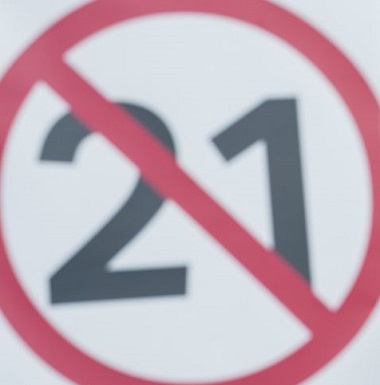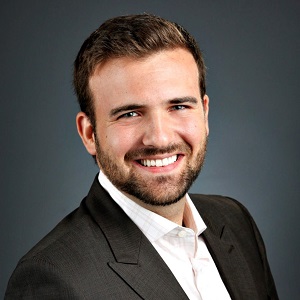 The Christian Legal Fellowship (CLF) submitted a legal brief to the National Assembly of Quebec (Committee of Institutions) May 14 regarding Bill 21, which seeks to ban the wearing of religious symbols by certain public workers.
The Christian Legal Fellowship (CLF) submitted a legal brief to the National Assembly of Quebec (Committee of Institutions) May 14 regarding Bill 21, which seeks to ban the wearing of religious symbols by certain public workers.
Following is the CLF submission, which is re-posted by permission.
Christian Legal Fellowship is thankful for this opportunity to comment on Bill 21, An Act respecting the laicity of the State.
By way of background, Christian Legal Fellowship is Canada’s national association of Christian lawyers, law students, jurists and law professors, and has long been active in Quebec. CLF has been granted intervener status in cases involving human rights and religious freedom by the Quebec Superior Court and the Quebec Court of Appeal, as well as the Supreme Court of Canada.
In 2012, the Quebec Superior Court noted that “[t]he CLF includes more than 500 jurists and possess an important degree of expertise in the areas of philosophy, morality, and ethics.”1 CLF is also a non-governmental organization (NGO) in Special Consultative Status with the Economic and Social Council of the United Nations.
We are deeply troubled by Bill 21’s prohibition of religious symbols for persons holding certain positions in Quebec.
While the legislation purports to be advancing “religious neutrality,” it does the exact opposite. By effectively banning citizens of certain faiths from public employment based on their religious expression and identity, the Bill is promoting an anti-religious public square.
Religious symbols are not a mere ‘fashion choice’. For many believers, they represent an act of worship and religious expression, compelled by sincerely and deeply held convictions that are “immutable or changeable only at unacceptable cost to personal identity”.2
Bill 21 forces those believers to choose between their faith and their jobs. Just as a “tax on wearing yarmulkes is a tax on Jews,”3 a ban on wearing religious symbols is a ban on religious people.
This is unacceptable in a free and democratic society.
The Bill’s invocation of the Notwithstanding Clause does not render this approach any less offensive, nor does it assure its legality. The Charter is neither the source of nor basis for natural and fundamental rights – it affirms and recognizes them and commits Canada’s governments to respect and protect them. But there are anterior and higher sources of truth and rights than those found in the Charter – this is affirmed in the Charter’s preamble itself.4
The Notwithstanding Clause only applies to certain provisions contained in the Charter, but religious freedom in Quebec and the rest of Canada has been long-recognized before, and outside of, that document. Freedom of religion is one of the “original freedoms which are at once the necessary attributes and modes of self-expression of human beings and the primary conditions of their community life within a legal order.”5
As several Quebec appeal court justices affirmed in Chabot v. School Commissioners of Lamorandiere (decided almost 35 years before the Charter), freedom of religion and freedom of conscience are “anterior to positive law.”6 These freedoms “find their existence in the very nature of man”7 and are entrenched in “natural law, first of all our laws.”8 They “cannot be taken away and they must prevail should they conflict with the provisions of positive law.”9
Just as the government could not “override [a] basic principle of natural law”10 prior to the enactment of the Charter, it cannot do so now. Indeed, nothing in the Charter – including section 33 – “extends the legislative powers” of the National Assembly or any other government body in Canada (per section 31).
The Notwithstanding Clause also does not affect section 26’s affirmation that the Charter “shall not be construed as denying the existence of any other rights or freedoms that exist in Canada.” This includes the “right of inviolability of conscience” and religious liberty, which “find their source in natural law.”11
In short, freedom of religion does not rise and fall with the Charter. All people have an inherent and inalienable right to freedom of religion, which not even the Notwithstanding Clause can eradicate.
This is not to say that natural rights are unlimited, but an attempt to restrict them in the manner contemplated by Bill 21 must be justified. In Chabot, Justice Casey suggested that limiting religious exercise might be justified where it is “harmful or opposed to the common good or in direct violation of the equal rights of others.”12 But such evidence has not been demonstrated here.
According to supporters of Bill 21, the alleged ‘harm’ that purportedly arises from the wearing of religious symbols is that it detracts from the appearance that public officials are ‘neutral.’ But neutrality is required of the state, not individuals.13
State neutrality exists not to coerce irreligious uniformity, but to promote and enhance religious diversity.14 To paraphrase the Supreme Court, the answer is not to ban religion from the public sphere, where employees “must park their religious convictions at the door.”15
Bill 21 fails to recognize that the exercise of one’s public duties may be enhanced – not prejudiced – by one’s religious commitments and background. This is true for lawyers and judges, as it is for all employed in public service. As Justices L’Heureux-Dubé and McLachlin observed in R v S(RD):
[J]udges in a bilingual, multiracial and multicultural society will undoubtedly approach the task of judging from their varied perspectives. They will certainly have been shaped by, and have gained insight from, their different experiences, and cannot be expected to divorce themselves from these experiences on the occasion of their appointment to the bench. In fact, such a transformation would deny society the benefit of the valuable knowledge gained by the judiciary while they were members of the Bar.16
International human rights instruments, including those by which the government of Quebec has declared itself to be bound, also protect freedom of religion. The International Covenant on Civil and Political Rights17 guarantees freedom of religion, including the right, “in public or private,” to manifest religion or belief “in worship, observance, practice and teaching” (Article 18, emphasis added). It also guarantees freedom from discrimination based on one’s religion (Article 26).
The International Covenant on Economic, Social and Cultural Rights18 expressly protects the right to work, “without discrimination of any kind as to . . . religion,” and affirms that the state must “take appropriate steps to safeguard this right” (Articles 2(2), 6). Due consideration and respect must be afforded to these commitments.
As lawyers, we are particularly concerned by Bill 21’s violation of the religious freedoms of our legal colleagues, including prosecutors and other lawyers who contract with, or are under the authority of, a government body, and who will be prohibited from wearing religious symbols (Schedule II, ss. 6-8).
As lawyers of faith, we view the practice of law as a manifestation of our religious commitments. Our religion is what compels us to serve our clients with compassion and to seek justice with integrity. It would be a profound loss to the public interest and common good if religious lawyers – based solely on their identifying with those very faith commitments – were denied the opportunity to participate equally in the administration of justice.
State neutrality prohibits the government from using its powers “to promote the participation of certain believers or non-believers in public life to the detriment of others.”19 Yet Bill 21 does precisely that. It creates a preferential space for those with certain beliefs (and non-belief), and it effectively bans from that space those with other beliefs. This is not true neutrality, but an “excessively radical conception” of “complete secularity” – one which is hostile, not neutral, toward religion.20
We call on the members of the National Assembly to reconsider the proposed legislation in light of these concerns.

Derek Ross, executive director of Christian Legal Fellowship.
Respectfully submitted,
Derek Ross,
Executive Director and General Counsel
Robert E. Reynolds,
CLF Past President (Lawyer, Montreal, QC)
1 Ginette Leblanc v Le Procureur Général du Canada et al (6 July 2012), Trois-Rivières 400-17-002642-110 (Qc Sup. Ct. (unofficial translation).
2 See Corbiere v. Canada (Minister of Indian and Northern Affairs), [1999] 2 S.C.R. 203 at para 13.
3 Bray v. Alexandria Women’s Health Clinic, 506 U.S. 263 (1993) per Scalia J. Alliance des chrétiens en droit Christian Legal Fellowship
4 See discussion in Jonathan W Penny & Robert J Danay, “The Embarrassing Preamble? Understanding the ‘Supremacy of God’ and the Charter” (2006) 36 UBC L Rev 287.
5 Saumur v. City of Quebec, [1953] 2 S.C.R. 299 per Rand J. at 329.
6 Chabot v. School Commissioners of Lamorandiere, (1957) 12 D.L.R. (2d) 796 at 802 per Pratte J. In that case, several justices including Justices Pratte, Casey, Hyde (supported by Justice Martineau), and Taschereau invoked freedom of religion as a natural, fundamental right and ordered a public school to excuse children of a religious minority from taking part in majoritarian religious exercises and instruction. See discussion in Leonid Sirota, First of All Our Laws, online: Double Aspect
7 Ibid at 807 per Casey J.
8 Ibid at 802 per Pratte J.
9 Ibid at 807 per Casey J.
10 Ibid at 813 per Hyde J.
11 Ibid at 807 per Casey J.
12 Ibid at 805 per Casey J.
13 Mouvement laïque québécois v. Saguenay (City), 2015 SCC 16 at para 74.
14 Ibid.
15 R. v. N.S., 2012 SCC 72, [2012] 3 S.C.R. 726, at para. 31. See also paras 50-51.
16 R v. S(RD), [1997] 3 SCR 484 at para 38 [emphasis added].
17 Ratified by Quebec, Arrêté en conseil 1438-76 (April 21, 1976).
18 Ratified by Quebec, Arrêté en conseil 1438-76 (April 21, 1976).
19 Mouvement laïque québécois v. Saguenay (City), 2015 SCC 16 at para 75.
20 Ibid at paras 77-78.
The submission was endorsed by 116 lawyers (including Geoffrey Trotter, Earl Phillips, Tabitha Ewert, Jessie Legaree, Jeffrey Lowe and Luke Johnson – and maybe others – from BC), retired judges, professors and students. Go here for the submission, and the full list of endorsers.
**************************************
Editor’s note: This is one of several statements and articles I have come across lately in which Christians are going out of their way to recognize the value of working with people of other faiths and/or protecting their rights. For example:
